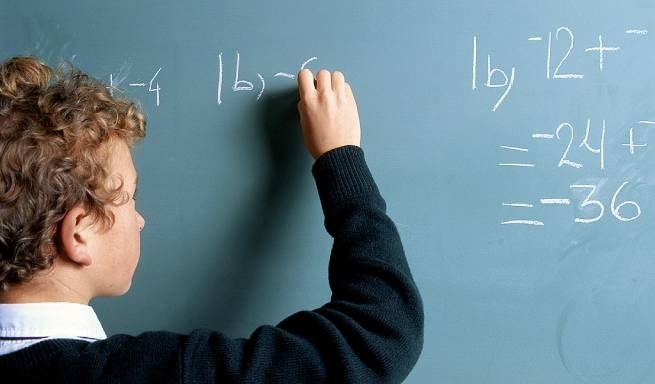With Greek schools reopening on Monday, there are many questions about masks, tests, after-school groups and possible innovations. About everything in order.
Elementary, middle and high school students and kindergarten students will return to school tomorrow, Monday September 12, without self-tests and mandatory use of masks. In this regard, in detail about the main criteria and innovations in the educational system of the 2022-2023 academic year:
- Almost 8,600 new permanent appointments in primary, secondary, special and educational institutions.
- End time for extended groups increased from 16:00 to 17:30 – to support working parents and improve the quality of free public education provided. Educational groups: after the end of the daily study schedule or during the study hours of the full day program, with subjects and activities such as creativity, sports, team sports, traditional/modern dances, visual arts, crafts and constructions, learning to play musical instruments , educational robotics, scientific designs-experiments.
- The content of the school programs has been updated – a new one has been added, with more creative activities for children (creative writing, fine arts, etc.).
- No registration criteria.
- Digital tools in the classroom – interactive whiteboards, robotics kits, digital learning materials aimed at further developing a quality digital education ecosystem – will begin to be installed during this school year.
- The presence of a teaching consultant-mentor with at least five years of experience: his role is to inspire, guide and support each newly appointed teacher in the school unit, with the aim of improving the quality of his teaching and in general. A mentor consultant provides an educational project. The in-school coordinator supports teachers in their work, as well as the efforts of the management of each school unit to strengthen it as a professional learning and development community.
- Kindergarten from 4 years old: two years of compulsory pre-school education carried out throughout the country.
- English in Kindergarten: Through creative and experimental activities, every child is given the opportunity to expand their language resources from an early age.
- Skills development workshops (traffic safety, robotics change, climate change, sex education, entrepreneurship, volunteering, etc.): new topics in the mandatory schedule of all kindergartens, primary and secondary schools in order to strengthen cross-cutting skills and core abilities of students .
- Horizontal teacher training: over 125,000 trainings that are an investment in the human resources of education.
- 166 new curricula: Piloting ΝΠΣ in the country’s standard and experimental schools continues in the 2022-2023 academic year.
- Doubling the number of standard and pilot schools from 62 to 120 within 3 years – for quality public free education and dissemination of good practice throughout the education system. For the first time, the creation of standard high schools with increased demand from applicants for admission. This year, 24 ΕΠΑΛ vocational schools will operate throughout the country.
- School Assessment: Self-assessment of school units and assessment of academic work continues, as well as PISA diagnostic tests to assess the education system, and teacher assessment begins as a feedback process to improve the education provided.
- Subject bank in Α, Β & Γ΄ Λυκείου: objective student assessment that ensures reliability, validity, validity and limitation of inequalities, while at the same time ensuring coverage of material throughout the country.
- Additional training in special national examination courses (free drawing, line drawing, French, German, Italian, Spanish, harmony, listening, musical perception / knowledge). The goal is to support and prepare candidates to participate in the nationwide examination specific courses they have chosen. All of these subjects were not previously taught in public schools.
- Strengthening the autonomy of school units: greater freedom in the organization of education, strengthening the role of the director and teachers in responsible positions, creating a system of increased transparency and accountability.
- The FILIA (FRIENDSHIP) program, aimed at prevention, educational approach, protection of children and adolescents from all forms of violence and bullying, as well as strengthening a safe environment.
6,000 full-time special education teachers have been hired, and new digital learning materials have been created for students with disabilities. In addition, almost all refugee students have been integrated into the Greek educational community, with the recruitment and training of teachers for refugee students at the same time in a targeted inclusive process.
About unvaccinated teachers. Although the use of a mask is not mandatory, unvaccinated teachers are expected to take a weekly rapid test, which should be done before Tuesday, but no later than forty-eight (48) hours before visiting the school block. If the result is positive, the ΕΟΔΥ protocol is applied.
Actions in case of detection of a case of coronavirus. The protocol for students, teachers, and staff with symptoms of COVID-19 is described in the Official Bulletin: “If a student exhibits symptoms of COVID-19 infection outside of school facilities, they remain at home and the school is notified under the responsibility of parents/guardians. If the student is in an educational institution, the following process occurs:
- contacting the family to pick up the student;
- isolation in a predetermined well-ventilated area, under supervision, away from other children and using a simple surgical mask;
- adherence to hygiene rules (washing hands and wearing a mask) by students and people who care for the sick person;
- use by personnel of personal protective equipment (mask, gloves, in case of a threat of release of biofluids or secretions from the respiratory tract – a waterproof apron and eye protection with goggles or a protective mask);
- thorough cleaning of the territory and surface treatment with a disinfectant after the student leaves, using personal protective equipment.
Parents are advised to conduct laboratory diagnostics for the sick person – an express test or a molecular control method (PCR). While waiting for the result, he remains in isolation at home, while the school continues to work. If the medical evaluation concludes that there are no signs of COVID-19 infection, the student may return to school after symptoms resolve. The same process applies to teachers and other school staff when there are signs of coronavirus.
If a student or staff member tests positive for COVID-19, “the student’s parent or guardian or teacher or other staff member will notify the head of the school unit of the positive COVID-19 diagnostic test result. They must remain in isolation for five days from the date of a positive laboratory diagnostic test. During the isolation period, a student or employee with confirmed COVID-19 must also refrain from all extracurricular activities – tutoring, sports, reports newsbeast.gr.







More Stories
Why cats don't go to your hands and don't like to be petted
Association of Professional Nutritionists to be created in Greece
The first ever Miss Artificial Intelligence beauty contest has been announced.